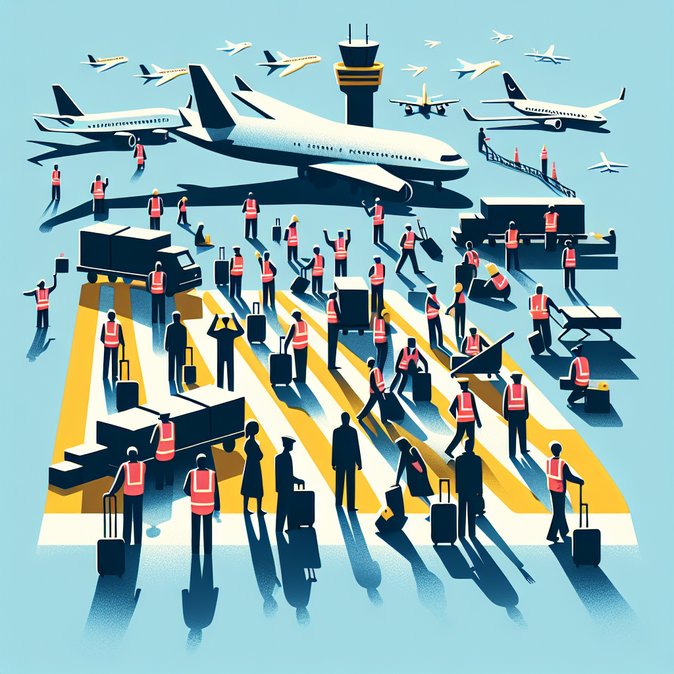
Germany awoke on 26 November to the biggest single-day walk-out at its commercial airports this year. The service-sector union Verdi called the 24-hour strike after marathon wage talks with public-sector employers again failed to yield an offer. Ground-handling staff, security screeners and some airport fire-and-rescue crews downed tools from 00:00 to 24:00, forcing the cancellation of roughly 3,400 flights across 10 hubs including Frankfurt, Munich, Berlin and Hamburg. The German Airports Association (ADV) estimated that more than 500,000 passengers were unable to travel, while tens of thousands more experienced extended delays and missed connections.
Frankfurt Airport, normally Europe’s fourth-busiest, suspended all originating passenger traffic and warned that transit operations would also be “severely restricted”. Lufthansa pre-emptively grounded most of its continental network for the day and offered free re-bookings or rail vouchers. Cargo operators were told to expect handling backlogs of up to 48 hours.
![Nationwide Airport Strike Grounds 3,400 Flights and Disrupts Half-a-Million Journeys]()
Verdi is demanding an 8 percent pay rise, a €350 flat-rate increase and higher allowances for night, weekend and hazardous duties. Employers have countered that the aviation sector, still clawing back post-pandemic losses, cannot shoulder an inflation-beating settlement without passing costs on to travellers. A federal mediation team is expected to intervene later this week.
For corporate mobility managers the timing is awkward: the fourth-quarter travel window is typically packed with year-end project visits and expatriate home-leave trips. Companies with critical staff on the move are scrambling for rail seats or road transport and revisiting duty-of-care protocols. Insurance brokers note that many policies define strikes as a “known event”, limiting coverage for new bookings made after the strike call.
The walk-out also revives debate over Germany’s strike laws. Business lobbies and several state governments are urging the federal coalition to legislate mandatory minimum-service agreements in aviation and other critical infrastructure, mirroring rules in France, Italy and Spain. While the right to strike is constitutionally protected, recent multi-airport stoppages have renewed calls for a balance between labour rights and the public interest in mobility.
Frankfurt Airport, normally Europe’s fourth-busiest, suspended all originating passenger traffic and warned that transit operations would also be “severely restricted”. Lufthansa pre-emptively grounded most of its continental network for the day and offered free re-bookings or rail vouchers. Cargo operators were told to expect handling backlogs of up to 48 hours.

Verdi is demanding an 8 percent pay rise, a €350 flat-rate increase and higher allowances for night, weekend and hazardous duties. Employers have countered that the aviation sector, still clawing back post-pandemic losses, cannot shoulder an inflation-beating settlement without passing costs on to travellers. A federal mediation team is expected to intervene later this week.
For corporate mobility managers the timing is awkward: the fourth-quarter travel window is typically packed with year-end project visits and expatriate home-leave trips. Companies with critical staff on the move are scrambling for rail seats or road transport and revisiting duty-of-care protocols. Insurance brokers note that many policies define strikes as a “known event”, limiting coverage for new bookings made after the strike call.
The walk-out also revives debate over Germany’s strike laws. Business lobbies and several state governments are urging the federal coalition to legislate mandatory minimum-service agreements in aviation and other critical infrastructure, mirroring rules in France, Italy and Spain. While the right to strike is constitutionally protected, recent multi-airport stoppages have renewed calls for a balance between labour rights and the public interest in mobility.










